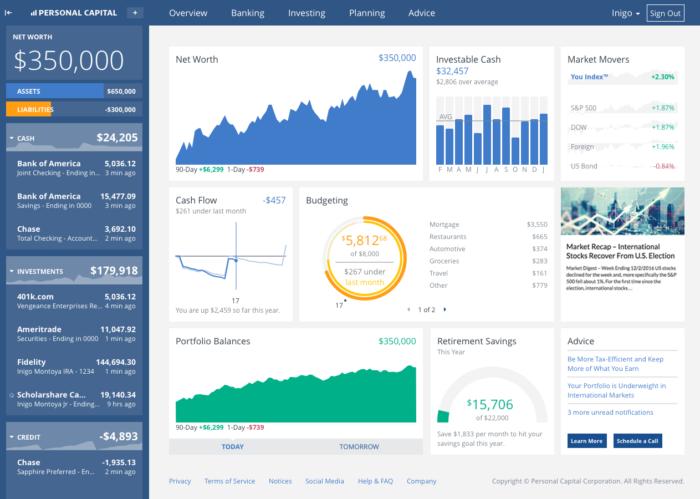Tracking Your Net Worth: The Why and How
For many people, the most important number is their income. I get it. It’s important to know what you’re earning so you can budget more efficiently and perhaps even focus on earning more.
Another number that holds a lot of weight is debt the amount of debt you might have. It can be daunting to think about debt and deal with constant payments which is why many people just want their debt gone asap.
One number that doesn’t get as much shine as it deserves is your net worth and not enough people discuss the importance of tracking your net worth.
When I used to hear the words ‘net worth’ I’d immediately think of old people or wealthy celebrities. They surely had a net worth but I didn’t, right? Wrong!
Everyone has a net worth and it’s one of the most important financial numbers you should be thinking about.
Your net worth basically represents the total amount of everything you own minus your debts.
Just like your income, you should know what your net worth it and track it regularly.
Table of Contents
Why Is Net Worth So Important?
Your net worth represents your assets which means it focuses more on what you keep and own as opposed to how much you make. Looking at your situation from an income standpoint only isn’t wise because your income can fluctuate or disappear completely.
So many people live paycheck to paycheck even if they earn a competitive salary often due to lifestyle expenses. Simply put, having a certain income or being debt free doesn’t really matter much if you don’t have any assets to show for it.
Related: How to Make Your Paycheck Last Two Weeks
Some common assets that can boost your net worth include things like: liquid savings, properties, vehicles, and investments. Furthermore, knowing what your net worth is and tracking it over time is important to do if you ever want to retire someday.
Financial independence won’t happen without a particular net worth. It helps to set a specific net worth goal and track your progress over time until you reach that goal.
If you just focus on income or debt your whole life, you’ll be stuck on a never-ending hamster wheel.
Now that you know why your net worth is important, let’s talk about how you can track it.
Assets – Liabilities
The formula to calculate your net worth is assets – liabilities. A liability is anything you owe whether it be student loans, personal loan debt, or a home loan.
We already went over what assets are but just to be clear, make sure you take the value of the asset into consideration.
For example, if you own a home valued at $225,000, you can list that amount in the assets category since that is how much your home is worth. Should you need to use that asset, you can sell your home and expect a purchase price of at least that much.
If you still owe $150,000 on your home, this amount will go in the liabilities category since it’s debt you still have to repay.
Your net worth could be a positive or negative number depending on your calculations. People who have a lot of debt and very little assets tend to have a negative net worth. If you’re able to pay off all your debt and start building assets by investing for example, you can transition your net worth to a positive number.
Growing Your Net Worth
If you calculated your net worth and weren’t too happy about the number you saw, you can always work on growing it over time. Here are a few things you can do to speed up the process.
Get Better at Budgeting
I’m a firm believer that everyone should budget. It’s not a choice or a luxury and it makes no sense to say that budgeting just ‘doesn’t seem right for you’. That’s almost like saying having money doesn’t seem right for you. If you have an income and expenses, you need to plan how you’ll allocate that money and that’s where budgeting comes in.
There are many different styles of budgeting and no one-size-fit-all solution. Managing your money with a clear and realistic budget will ensure you’ll have enough to save and put into assets instead of mismanaging your finances.
Pay Down Debt
Debt is a huge liability. Debt payment not only ties up your disposable income but being in debt puts you at risk of not having enough money to cover future expenses which creates a never-ending cycle.
It’s best to develop a plan to pay off your debt urgently and by doing so, your net worth with automatically increase.
Related: How to Start Making Progress When You’re Stuck in Debt
How My Husband and I Paid Off $14k of Debt in 1 Year
How to Get Started With the Snowball Method
Invest
After you get on a budget and pay off debt, it’s time to start investing. Investing will help you create assets to build your net worth. You can invest in your retirement accounts, rental properties, along with the stock market.

Start Tracking Your Net Worth
Once you’ve calculated your net worth and decide how you’re going to improve it, you’ll want to start tracking it. If you have a goal in mind, you can hold yourself accountable by tracking your net worth regularly.
For example, if you want to have a $1 million net worth in order to retire, you know what your end goal is and how much your net worth needs to increase each year according to your deadline.
One of my favorite free tools I use to track my net worth is Personal Capital. Personal Capital is a free financial aggregator that shows you all your account information in one place. It’s similar to Mint but more detailed and structured in my opinion.
Once you sign up and connect all your accounts, the system will update you on your balances in real time. When you log in, you’ll see your net worth number on the main dashboard so you don’t have to do any manual calculations.
The first things you see in your main dashboard is a graph with your net worth number. The graph on the main dashboard shows you the change in your net worth over the past 30 days. If you click it, you will bring to another screen where you can choose what period of time you would like to see the change in your net worth. Personal Capital calculates your net worth by totaling all of your linked assets (cash, home equity, etc) and debts (credit cards, loans, etc.).
Here’s an example of what the dashboard currently looks like.

Cashflow
Cash flow is important when it comes to tracking your net worth. On the main dashboard, Personal Capital shows you your cash flow for the past 30 days. The circle chart shows your income and expenses which is great for keeping track of your budget.
Portfolio Balances
The portfolio balances section in Personal Capital shows the total value of your investments so be sure to connect any investment accounts you have for an accurate representation.
Allocation
The last section on Personal Capital’s main dashboard shows your portfolio allocation. This shows you in what type of funds your investment money is being put.
Most people will invest in a combination of stocks and bonds, whereas more stocks mean a riskier allocation and more bonds means you’re investing conservatively. It’s not uncommon for younger people to have a riskier portfolio allocation since their investments will have time to recover if the market goes south.
Final Thoughts
It’s not always about how much you make but more about what you actually do with the money and the legacy that you build with it. Your net worth is one of the most important financial numbers you’ll have and it’s crucial that you keep track of it.
Personal Capital is the go-to tool to help track and manage your net worth for free. If you haven’t yet, I’d suggest you check it out and let me know what you think!
Stop Worrying About Money and Regain Control

Join 5,000+ others to get access to free printables to help you manage your monthly bills, reduce expenses, pay off debt, and more. Receive just two emails per month with exclusive content to help you on your journey.






